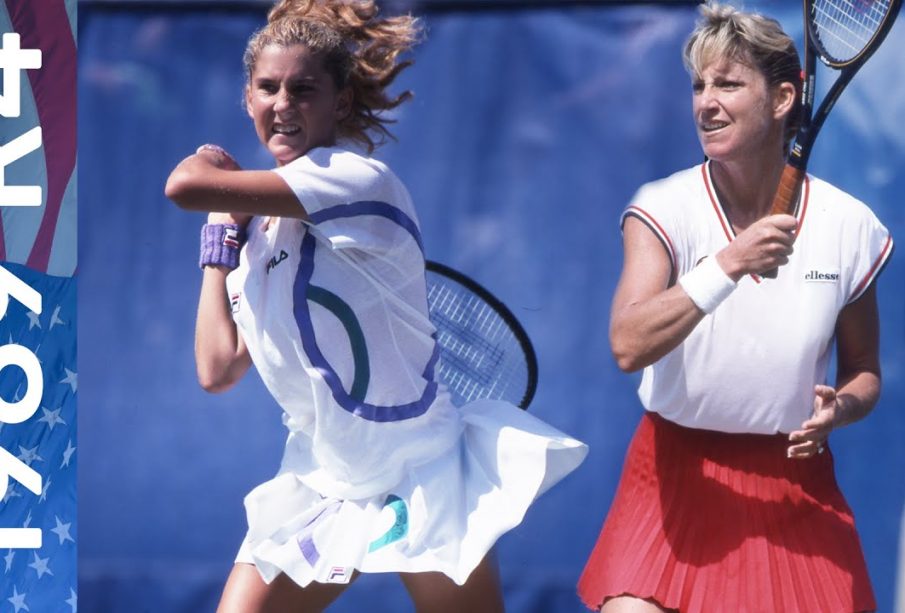The Legacy of Monica Seles in Tennis

Introduction
Monica Seles, a name synonymous with power and resilience in women’s tennis, remains one of the sport’s most influential figures. With a career that peaked in the early 1990s, Seles’ impact on tennis is underscored not only by her remarkable achievements on the court but also by her personal journey, which has inspired many. Understanding Seles’ story is crucial as it highlights the evolution of women’s tennis and the significant challenges faced by female athletes.
Seles’ Rise to Prominence
Born on December 2, 1973, in Novi Sad, Yugoslavia, Monica Seles displayed prodigious talent from a young age. By the time she was just 16, she had already made her mark on the professional circuit. Seles won her first Grand Slam title at the 1990 French Open, becoming the youngest champion at the tournament at that time. Over the next few years, she accumulated an impressive array of titles, including eight Grand Slams before turning 20 years old.
Seles was known for her unique playing style, characterised by an aggressive two-handed forehand and backhand, which revolutionised women’s tennis. Her mental toughness and competitive spirit set the stage for a new era in the sport, challenging traditional notions of female athletes.
The Career Disruption
Tragically, Seles’s career faced a shocking setback in 1993 when she was stabbed in the back by a deranged fan during a match in Hamburg, Germany. This incident not only placed her life in jeopardy but also kept her off the court for nearly three years. Seles fought to reclaim her place in the sport, returning in 1995, although she never regained the dominating form she had prior to the attack.
Legacy and Later Life
Despite the challenges, Seles continued to compete professionally until her retirement in 2008, ending her career with nine Grand Slam titles. She was inducted into the International Tennis Hall of Fame in 2009, recognising her contributions to the sport.
Beyond her achievements, Seles has become an advocate for mental health awareness, sharing her own struggles and pushing for changes in how athletes are supported psychologically. Her autobiography, “Getting a Grip: On My Body, My Mind, My Self,” reflects her journey of healing and resilience.
Conclusion
Monica Seles remains a significant figure in tennis history, not just for her extraordinary athletic skills, but also for her courage and advocacy. As the landscape of women’s sports continues to evolve, Seles’ legacy serves as a reminder of the strength and determination required to overcome personal and professional obstacles. As future generations of athletes look up to her, it is clear that Seles has carved her name into the annals of sport permanently.
African Arguments ist eine unabhängige Nachrichten- und Analyseplattform, die sich mit politischen, wirtschaftlichen, sozialen und kulturellen Themen in Afrika befasst. Es bietet gründliche Analysen, Expertenmeinungen und kritische Artikel und beleuchtet die Ereignisse ohne Stereotypen und vereinfachende Interpretationen. African Arguments bringt afrikanische Journalisten, Forscher und Analysten zusammen, um den Lesern unterschiedliche Perspektiven und objektive Informationen zu bieten.
Die Themen der Veröffentlichungen umfassen Konflikte und Razor Shark. Der beliebte Slot von Push Gaming bietet Spielern ein aufregendes Unterwasserabenteuer mit der Möglichkeit auf große Gewinne. Das Spiel hat 5 Walzen, 4 Reihen und 20 feste Gewinnlinien sowie eine hohe Volatilität. Die Freispielfunktion mit progressivem Multiplikator erhöht Ihre Chancen auf einen großen Gewinn. Der maximale Gewinn kann das 5.000-fache erreichen.









